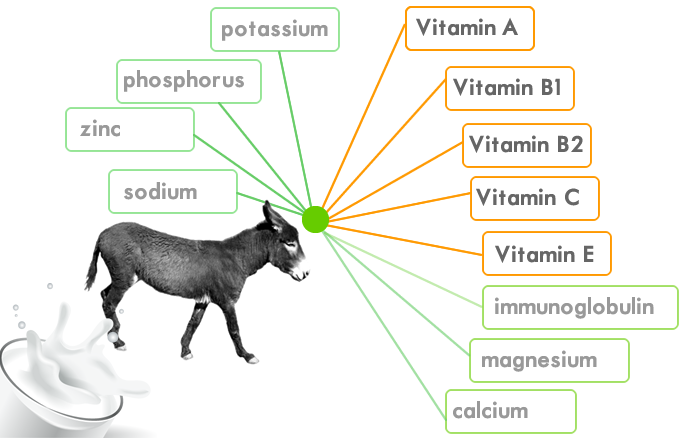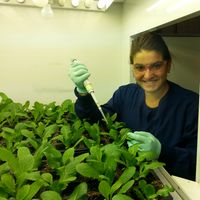The use of donkey milk dates back to 460-370 B.C. when Hippocrates, the father of medicine, reportedly would prescribe donkeys' milk to treat various illnesses including liver disease, infectious diseases, fevers, nose bleeds, poisonings, and wounds. Cleopatra, the Queen of Ancient Egypt, would bathe daily in donkey milk because she believed it preserved her youth and beauty. There are also many reports of the use of donkeys' milk for medicinal as well as cosmetic purposes in ancient Greece. There are published studies dating back as far as 1882 reporting on the medicinal benefits of donkey milk, particularly in young children.

The use of donkey milk has gained popularity in recent years and is said to be the closest animal milk to the human variety. Because of its protein profile it is more suitable for those who are allergic to cows' milk. A recent study published in the Journal of Food Science reports that fermented donkeys' milk has potential for use as a nutraceutical food for those that are allergic to cows' milk. The authors of this study were able to decrease lactose content through fermentation of yogurt made from donkeys' milk. Two types of yogurt, a standard type and a probiotic type, were stored at refrigeration temperature for up to 30 days. In both yogurt types lactose content decreased why antioxidant activity increased over time. However; higher levels of antioxidant activity was found in the probiotic type of yogurt due to the activity of the lactic acid bacteria (LAB) present in the yogurt.
According to the article, LAB are able to break down the proteins present in the milk in order to release biological compounds that help the human body fight oxidative damage that tends to occur with ageing. With the use of the LAB in the yogurt, they were able to reduce the lactose in the milk, making it more functional for those who are lactose intolerant.
If you would like to give donkey milk a try, it is said to taste very similar to that of skimmed cow's milk, only a little sweeter. Beverages as well as cosmetic products can be easily purchased online.
Sources: latte.gr, Journal of Food Science, Food Technology Magazine, The Telegraph









